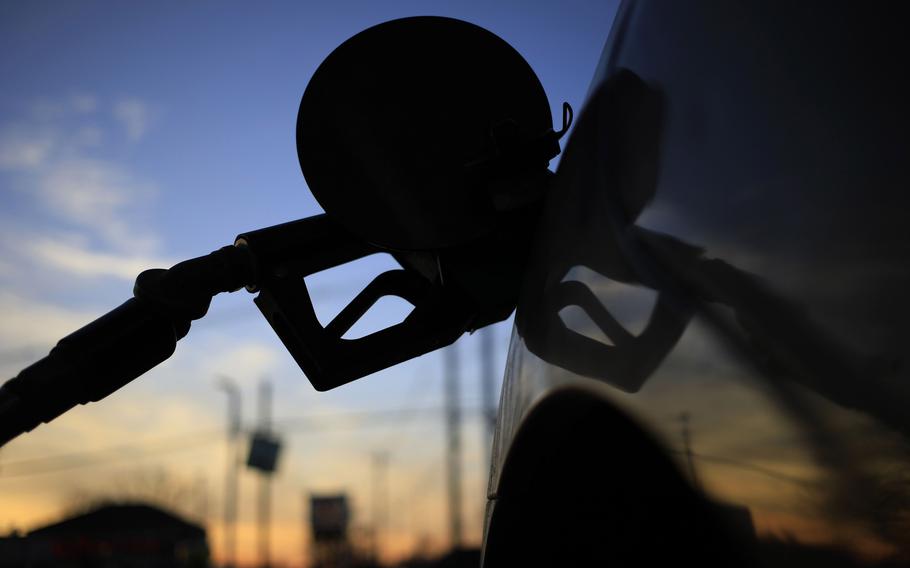
A fuel pump in a vehicle at a BP gas station in Louisville, Ky., on Jan. 29, 2021. (Luke Sharrett/Bloomberg)
Gasoline demand in the world’s largest economy is heading into one of its traditional peak seasons with some of the lowest stockpiles in almost three decades.
That’s setting the stage for a supply squeeze usually only seen when a hurricane knocks out oil refineries in Texas and Louisiana, according to one major fuel distributor.
The effects may have far-reaching consequences not only for companies trying to recover from a criminal hack that crippled the most important American fuel pipeline for almost a week, but for the post-pandemic economic recovery that’s vulnerable to any surge in gasoline prices.
Retail station owners and convenience-store chains “are going to really struggle to keep everything at adequate levels,” said Andy Milton, vice president of supply at Mansfield Energy Corp., which handles more than 3 billion gallons of fuel annually. The last time the supply picture was this ominous was in the aftermath of Hurricane Katrina in 2005, he noted.
Even with days to go before motorists take to the highways for Memorial Day sojourns, gasoline inventories are the tightest they’ve been in years, partly because refiners curbed output for months to cope with the pandemic-driven demand slump.
The four-week average for gasoline supplied, a proxy for demand, rose above 9 million barrels a day for the first time since March 2020, when the pandemic decimated motor fuel consumption. Meanwhile, national inventories fell to their lowest in two months, according to U.S. government data.
The picture is darkest in the Midwest market that includes cities like Chicago and Minneapolis, where gasoline stockpiles are the smallest they’ve been for this time of year since 1992. To the east, in the region that includes New York and Philadelphia, seasonal inventories are at a seven-year low, according to a government tally.
Add in the June 1 start to what is forecast to be an exceptionally raucous Atlantic storm season and it’s a recipe for even more disruption, Milton said. His company already is stockpiling extra supplies in Florida to mitigate any hurricane-triggered shortages.
A large swath of the nation is still recovering from the Colonial Pipeline shutdown earlier this month that cut off fuel to cities across the Southeast. Restoring regional supplies hasn’t been as easy as restarting the flow of fuels on the conduit, in part because of a severe shortage of trucks and drivers need to ferry gas from hubs to retailers.
Refiners who spent much of the past year scaling back output as lockdowns crushed fuel use would be in a better position to dispatch supplies if their so-called utilization rates were above 90%, Milton estimated. As recently as last week, the rate along the Gulf Coast was 88%, one of the lowest seasonal rates in almost a decade.
“The summer seasonal demand trends will be amplified as economies reopen and demand for refined products, particularly gasoline, improves,” said Louise Dickson, an analyst at research firm Rystad Energy.
One in every nine Americans will travel 50 miles (80 kilometers) or more from Thursday through Sunday, auto club AAA said. That’s a 61% increase from last year’s holiday weekend, which occurred during what for many regions was the height of the pandemic’s first wave.
Gasoline prices already are at six-year highs and the worst shortages in the days ahead probably will be seen around Washington, D.C., and in the Carolinas, Georgia and Tennessee, said Patrick DeHaan, head of petroleum analysis at GasBuddy.
Shortages also appear likely near beaches, mountain retreats and national parks, said Jeannette Casselano, an AAA spokeswoman.
“We recommend that motorists fill up with a quarter tank of gas left,” she said.